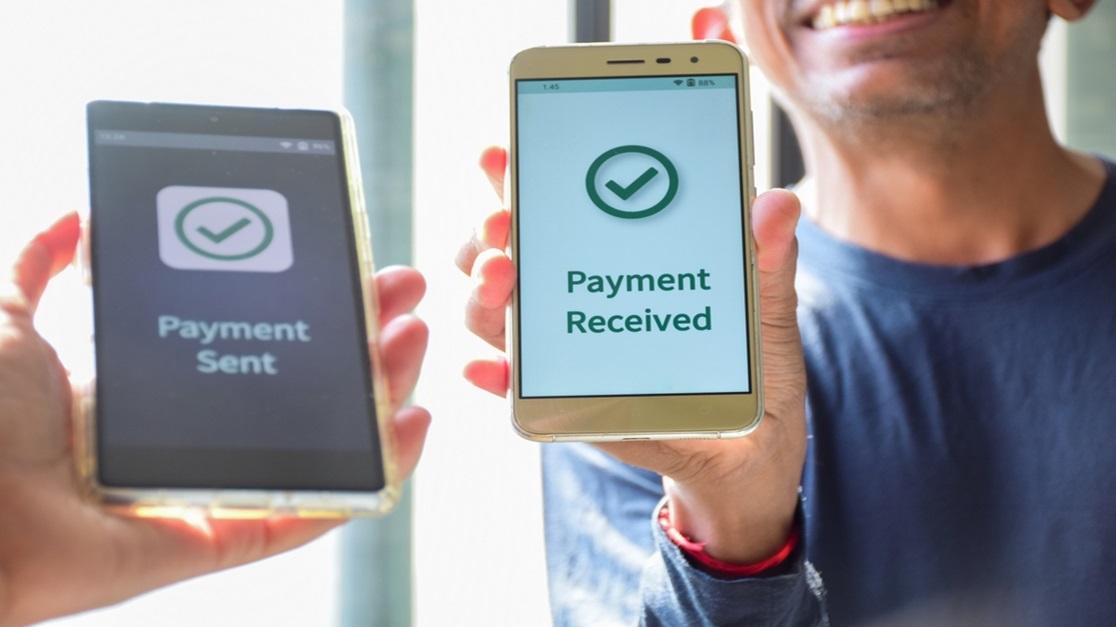What is IMPS? A Comprehensive Guide to Immediate Payment Service
January 31, 2025

IMPS, which stands for Immediate Payment Service is a revolutionary interbank electronic funds transfer system in India. Launched by the National Payments Corporation of India (NPCI), IMPS allows you to transfer funds instantly and securely through mobile banking, internet banking, or even ATMs. Known for its real-time capabilities, IMPS is a popular choice for quick and efficient financial transactions across the country.
Features and Benefits of IMPS
IMPS is widely recognized for its versatility and user-centric features. Here's a closer look at what makes IMPS stand out:
24/7 Availability
IMPS operates round the clock, including weekends and public holidays, ensuring users can transfer money whenever needed.
Daily Transaction Limit
Users can transfer up to ₹5 lakh per day, depending on their bank's specific policies.
Multiple Platforms
IMPS transactions can be initiated via mobile banking, internet banking, or ATMs, offering flexibility and convenience.
Secure and Reliable
Robust encryption and authentication measures ensure the safety of each transaction, making IMPS a trusted platform.
Real-time Transfers
Funds are transferred instantly, minimizing delays in financial transactions.
Economical
IMPS charges are nominal, typically ranging from ₹5 to ₹15 per transaction, making it a cost-effective option.
What is the IMPS Transfer Limit?
The IMPS transaction/transfer limit and charges may vary from bank to bank. For Ujjivan Small Finance Bank, IMPS transaction limit is as follows:
1. IMPS: P2A
- Limit per transaction: ₹5 lakh
- Daily transaction limit: ₹10 lakh
2. IMPS: P2P
- Limit per transaction: ₹10,000
- Daily transaction limit: ₹10,000
*Data as on 6 December 2024
What are the Charges for IMPS Transaction?
The IMPS transaction charges may vary across banks. For Ujjivan Small Finance Bank, the charges are as follows:
- IMPS Inward: Nil
- IMPS Outward up to ₹1 lakh: ₹5
- IMPS Outward from ₹1 lakh to ₹2 lakh: ₹15
What is IMPS P2A Transfer?
IMPS P2A (Person-to-Account) transfer is a real-time interbank fund transfer that allows you to transfer money to a beneficiary's bank account using their account number and IFSC code. This method is secure, fast, and operates 24/7, making it ideal for quick payments.
What is IMPS P2P Transfer?
IMPS (P2P (Person-to-Person) transfer is also a real-time fund transfer option that allows sending money using the beneficiary's mobile number and MMID (Mobile Money Identifier). It’s a convenient method, especially when the sender doesn't have the recipient's bank account details. Like P2A, P2P is also instant and available 24/7. However,
How to Use IMPS for Fund Transfers
IMPS offers various modes for transferring funds. Here's a step-by-step guide:
1. Via Mobile or Internet Banking:
- Log in to your bank’s mobile app or net banking platform.
- Navigate to the Transfer Funds section.
- Choose the IMPS option and select the transfer type (MMID or account number).
- Enter beneficiary details and transaction amount.
- Authenticate with your MPIN or transaction password.
2. Via ATMs:
- Visit your bank’s ATM and choose the IMPS Fund Transfer option.
- Enter the beneficiary's mobile number, MMID, and the amount.
- Authenticate the transaction using your debit card and ATM PIN.
What Happens If Your IMPS Fund Transfer Fails?
You can check your IMPS fund transfer status via Mobile Banking or Net Banking. If the IMPS fund transfer status shows as ‘FAILED’ or ‘PENDING’, you should contact your bank immediately (Ujjivan Toll Free Number: 1800 208 2121) to know more about the issue. In most cases, if the IMPS fund transfer fails, the amount is reversed back into your account within a few hours.
Advantages of IMPS
IMPS offers a host of benefits that make it an indispensable tool for digital transactions:
Instant Transactions
Real-time processing ensures immediate fund transfers.
Safe and Secure
Advanced security protocols protect sensitive user data and transaction details.
Accessible Anytime
Operates 24/7, providing unparalleled convenience.
Versatile Applications
IMPS is suitable for peer-to-peer transfers, merchant payments, and utility bill settlements.
Hassle-free Beneficiary Addition
Adding beneficiaries is simple, requiring only mobile numbers and MMIDs.
Instant Notifications
Both sender and receiver receive immediate transaction alerts, ensuring transparency.
IMPS vs Other Payment Methods
Here's how IMPS compares with other popular payment systems:
| Feature | IMPS | NEFT | RTGS | UPI |
| Speed | Instant | Up to 2 hours | Real-time | Instant |
| Availability | 24/7 | Banking hours | Banking hours | 24/7 |
| Transaction Limit | Up to ₹5 lakh/transaction | Up to ₹10 lakh | ₹2 lakh minimum to 10 lakh | Bank-specific |
| Cost | Nominal | Low | Low | Free/Low |
Final Thoughts
IMPS facilitates instant fund transfers from one bank account to another. You can also use beneficiary’s mobile number to transfer funds. However, know your bank’s transaction/transfer limit to avoid any unpleasant surprises.
Enjoy easy banking with Ujjivan Small Finance Bank. Save more with our high-interest Savings Account and Deposit products. Need cash for your business or personal needs? Apply for MSME Loans or Micro Loans with us – we offer competitive rates and quick disbursal. We also offer vehicle loans and home loans tailored for your unique requirements. Experience a smooth banking journey with Ujjivan SFB!
Disclaimer:
The contents herein are only for informational purposes and generic in nature. The content does not amount to an offer, invitation or solicitation of any kind to buy or sell, and are not intended to create any legal rights or obligations. This information is subject to updation, completion, amendment and verification without notice. The contents herein are also subject to other product-specific terms and conditions, as well as any applicable third-party terms and conditions, for which Ujjivan Small Finance Bank assumes no responsibility or liability.
Nothing contained herein is intended to constitute financial, investment, legal, tax, or any other professional advice or opinion. Please obtain professional advice before making investment or any other decisions. Any investment decisions that may be made by the you shall be at your own sole discretion, independent analysis and evaluation of the risks involved. The use of any information set out in this document is entirely at the user’s own risk. Ujjivan Small Finance Bank Limited makes no representation or warranty, express or implied, as to the accuracy and completeness for any information herein. The Bank disclaims any and all liability for any loss or damage (direct, indirect, consequential, or otherwise) incurred by you due to use of or due to investment, product application decisions made by you on the basis of the contents herein. While the information is prepared in good faith from sources deemed reliable (including public sources), the Bank disclaims any liability with respect to accuracy of information or any error or omission or any loss or damage incurred by anyone in reliance on the contents herein, in any manner whatsoever.
To know more about Ujjivan Small Finance Bank Products Visit:"https://www.ujjivansfb.in"
All intellectual property rights, including copyrights, trademarks, and other proprietary rights, pertaining to the content and materials displayed herein, belong
to Ujjivan Small Finance Bank Limited or its licensors. Unauthorised use or misuse of any intellectual property, or other content displayed herein is strictly prohibited and the same is not intended for distribution to, or use by, any person in any jurisdiction where such distribution or use would (by reason of that person’s nationality, residence or otherwise) be contrary to law or registration or would subject Ujjivan Small Finance Bank Limited or its affiliates to any licensing or registration requirements.
FAQs
1. What is IMPS?
IMPS (Immediate Payment Service) is a real-time interbank electronic funds transfer system in India.
2. How does IMPS differ from NEFT and RTGS?
IMPS processes transactions instantly, unlike NEFT and RTGS, which operate during banking hours.
3. What is the maximum transaction limit for IMPS?
The daily transaction limit is ₹5 lakh, though this may vary by bank.
4. What are the charges for IMPS transactions?
Transaction charges range from ₹5 to ₹15, plus applicable service tax.
5. Is IMPS available on holidays?
Yes, IMPS operates 24/7, including public holidays.
6. How secure is IMPS?
IMPS employs encryption and authentication protocols to ensure secure transactions.
7. Can I use IMPS through an ATM?
Yes, many banks offer IMPS fund transfer services via their ATMs.
8. What details are needed for an IMPS transfer?
For an IMPS transfer, you need the beneficiary’s account number or MMID, along with the bank IFSC.
9. Is there any service tax on IMPS?
Yes, a nominal service tax may be applicable as per bank and government regulations.
10. Can IMPS be used for international transfers?
No, IMPS is currently limited to domestic fund transfers within India.
Latest Blogs

Dussehra 2025: How to Win Your Financial Battles with Smart Saving
Dussehra 2025 (also known as Vijayadashami) falls on Thursday, October 2, 2025.

eSIM Scam in India: I4C Warns Mobile Users About Rising Fraud – How to Stay Safe
The Indian Cybercrime Coordination Centre (I4C), a wing of the Ministry of Home Affairs, issued a strong warning to mobile users about the rapid increase in eSIM fraud in India.

How to Link PAN with Aadhaar: Step-by-Step Guide & Consequences of Not Linking
Linking your Permanent Account Number (PAN) with your Aadhaar is no longer just a best practice.

Annual Information Statement (AIS): A Complete Guide for Stress-Free ITR Filing
India’s tax season is in its final stretch.

ITR-1 (Sahaj) Restrictions: Income Sources Not Allowed & Filing Rules
With just a few days left before the 15 September 2025 deadline for filing Income Tax Returns (ITRs) for Assessment Year (AY) 2025-26, many taxpayers are rushing to submit their forms online.





